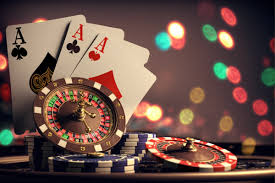
Slot machines have long been a staple of the gambling world, RajaAkurat Link Alternatif captivating players with their flashing lights, exciting sounds, and the promise of big winnings. But what exactly makes these machines so irresistible? In this article, we delve into the mechanics and psychology behind slot machines to understand their enduring appeal.
The Mechanics of Slot Machines
At their core, slot machines are simple devices. Players insert coins or tokens into the machine and then pull a lever or press a button to set the reels in motion. These reels are typically adorned with various symbols, such as fruits, numbers, or playing card suits. When the reels stop spinning, the combination of symbols displayed determines whether the player wins or loses.
Modern slot machines use random number generators (RNGs) to ensure that each spin is entirely random and independent of previous spins. This means that there is no way to predict or influence the outcome of a spin, making every play purely a game of chance.
The Psychology Behind Slot Machines
While the mechanics of slot machines are straightforward, their psychological appeal is far more complex. Several factors contribute to the allure of these games:
- Reinforcement and Rewards: Slot machines are designed to provide frequent, intermittent rewards. Even if a player doesn’t win on every spin, they are often rewarded with small payouts or bonus features, keeping them engaged and motivated to continue playing.
- Lights and Sounds: The sights and sounds of a slot machine are carefully crafted to stimulate the senses and create an immersive experience. Bright flashing lights, catchy jingles, and celebratory sounds accompany wins, triggering feelings of excitement and anticipation.
- Near Misses: Slot machines often incorporate near-miss outcomes, where the reels stop just short of a winning combination. These near misses give players the illusion of being close to a big win, encouraging them to keep playing in the hopes of achieving a successful outcome.
- The Gambler’s Fallacy: Many players fall victim to the gambler’s fallacy, the mistaken belief that past outcomes influence future results. For example, if a player has experienced a series of losses, they may erroneously believe that a win is due to occur soon, leading them to continue playing in pursuit of that elusive jackpot.
- Variable Rewards: Slot machines employ a technique known as variable ratio reinforcement, where rewards are delivered unpredictably and at varying intervals. This reinforcement schedule is highly effective at promoting persistent behavior, as players never know when they might hit the jackpot.
Conclusion
Slot machines are more than just games of chance; they are sophisticated psychological tools designed to captivate and entice players. By understanding the mechanics and psychology behind these machines, players can make more informed decisions about their gambling habits and recognize when to step away from the allure of the spinning reels.
